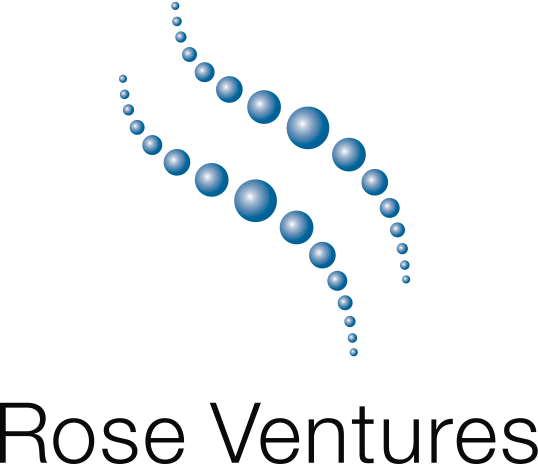Fresh Starts
Spring is a time of rebirth and fresh starts, and a reminder of the cycles of life. I’ve been enjoying the reappearance of warmer weather and green foliage here in New England over the past month, and our animal friends appear even happier about it. While the general themes of this season are not new, the specific events that may occur are impossible to predict. As I’ve noted many times before, the nature of life and the physical world in which we exist are incredibly complex and much remains to be learned. We regularly encounter events that we don’t fully understand, had no prior knowledge of, and/or could not have anticipated.
Over the past month there have been a few major developments in the life science/ biotech/ healthcare space, expected by some and surprising others. From my vantage point some of the most notable have been:
FDA’s new policy regarding Laboratory Developed tests (LDTs)
This policy has been in the works for years, so beyond the final content, the biggest surprise was that it was finally published. I understand the desire to see more regulation and oversight given the opportunity for abuse of the current system by certain LDT providers. Some of this can be seen in the form of insufficiently or improperly validated tests, or tests that are marketed for inappropriate contexts of use. On the other hand, I remain very concerned that if FDA treats LDTs as IVDs this will have a chilling effect on investment in (and thus development of) new diagnostic tests, in particular those that might benefit smaller populations. Venture investors may decide they cannot justify the time, cost and added risk associated with seeking FDA approval for a relatively small market opportunity. Hopefully there will continue to be some degree of discretion on behalf of FDA, and the “final rule” will remain open to reasonable modifications that provide a path for innovation and development of new diagnostic tests addressing less common conditions. In late breaking news, the ACLA has filed suit in Texas to seek an injunction to stop FDA from implementing the new rule.
Non-compete agreements being ruled illegal in courts
Non-compete agreements have been illegal in California for some time now, and I personally am pleased to see that this has been extended nationwide. My sense is that confidentiality agreements and invention assignments should provide sufficient protections to prior employers without having to restrict an individual’s opportunity to work for any future employer, even a competitor.
Advances in xenotransplantation
Over the past month we have witnessed some pioneering work by scientists and clinicians in organ transplantation, enabled by courageous volunteers who sought to try unproven approaches under compassionate use guidelines. They gave their bodies and their lives with just a glimmer of hope that they would benefit personally, yet knowing their actions would help advance the field of transplantation, and those who will need organ replacement in the future.
I wrote a prior blog post about a patient transplanted with an engineered porcine kidney at Massachusetts General Hospital, who sadly only survived an additional two months. Another patient similarly transplanted at New York University had their engineered porcine kidney removed at the end of May, terminating that trial. In both cases, however, important information was learned that will help advance this field in the hope that one day xenotransplantation may become a viable alternative for those in need of organ transplants.
This story is typical of how science proceeds, often in small steps, building on the knowledge gained from successes, failures and discoveries generated previously by others. New ideas and approaches are conceived at each step along the way, leading to the next round of experiments. At various points in time discoveries are made, milestones are achieved, and observations either support or refute hypotheses. The practice of science is thus an ongoing quest to expand our knowledge, continually learning bit by bit, reconsidering and possibly changing our hypotheses as new information is obtained. It’s a methodical journey in search of truth, recognizing there is always much we don’t know, don’t understand, and can’t possibly anticipate. As applied to healthcare, we hope that in the course of our journey we make discoveries that will have a positive impact on people’s lives.
><><><
Book update:
From the day I began writing “Can’t Tame a Mongoose” my primary objective has been to share insights gained from my experience in the life science and healthcare business that might benefit others, in particular aspiring bio entrepreneurs. Thus far I’m very pleased with the feedback received, including Amazon reviews, comments from friends and colleagues, as well as interviews and invited articles. It’s been gratifying to see that so many in my intended audience have enjoyed the stories I chose to share, and “get” the key messages I tried to illustrate.
Here are links to a few articles and interviews related to the book:
Interview with Scott "Shalom" Klein on Get Down To Business (12 min listen)
Review in Medium, by Colin Jordan (3 min read)
Article in Young Upstarts, “Moments Of Truth: How To Navigate Unexpected Events In Business And Life” (3 min read)
You can find other articles, reviews and interviews on my book page.
Now through June 9th I’m running an e-book promotion to provide easy access for anyone who wants to read the book.
Whether you choose to pick up an eBook or a physical copy, Spring is a great time of year to find a patch of fresh grass outdoors across much of the northern hemisphere and spend a few hours reading. I hope you enjoy it!
